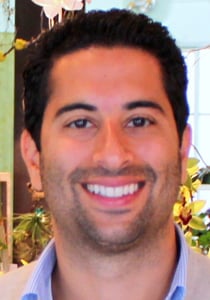
Maker Studios pitches its service as a platform for video stars to make more money off their creations.
The company recently bolstered that pitch with the release of a new analytics software, Maker Max, which gives its clients insight into how their videos are spreading.
Maker Max – available to anyone within the company’s network – displays real-time metrics such as the number of times a video has been viewed, the average time a viewer spends watching it and the social networks that drive the most traffic to it. There’s also a forum feature where creators can chat with others in the Maker community.
Many of these features are not normally provided by YouTube, and according to Maker Chief Ynon Kreiz, it’s the support a video maker needs to be a professional online creator. More to the point, it’s a reason these creators should be with Maker Studios.
“Technology is the core of everything we do, allowing us to empower the global creator community to maximize online reach and monetization,” Kreiz said in a release. “Creators will use Maker Max to drive programming and marketing decisions, lower the cost of user acquisition, drive tune-in and grow their business.”
The company is not the first of the L.A.-based YouTube networks to provide in-house software to its partners. Culver City’s Full Screen has developed a so-called “analytics dashboard” that tracks data and offers insights into a video’s performance.
Even with these new services, the driving pitch Maker and other such networks offer to video creators remains the chance to partner with a big company that can promote a channel, strike up branding deals and goose other revenue sources.
But software like Maker Max is a push to broaden a network’s appeal beyond the guarantee of higher revenue. That was a promise networks initially made to talent, one that went on to backfire as the market for online video advertisements has been slow to meet expectations.
As part of the release announcing Maker Max, the studio also revealed that some of its channels will soon be rolling out websites that stream video using a new proprietary player. Maker acquired that technology when it purchased Blip over the summer, a move perceived as a step toward the network’s goal of reducing its dependence on YouTube.
New Blooms
Flower delivery services seem to be popping up like weeds around Los Angeles. Perhaps that analogy is unduly harsh – how about spreading through the Southern California hills like golden poppies after a wet winter? Either way, there are more of them.
The latest is BloomNation, which recently announced $1.65 million in seed funding (stop it). Funding was led by a handful of investors from across the country, including Menlo Park’s Andreessen Horowitz and Boston’s Spark Capital, with contributions from San Francisco’s CrunchFund and Santa Monica’s MuckerLab. The company was co-founded by Farbod Shoraka, Gregg Weisstein and David Daneshgar.
BloomNation’s investment comes a few months after another local online flower delivery service, Bouqs, announced its seed funding this June. These startups are the newest additions to a lush landscape of locally based floral delivery services, such as FTD, a division of Woodland Hills’ United Online Inc., and Teleflora, a unit within Stewart and Lynda Resnick’s massive West L.A. holding company, Roll Global.
BloomNation advertises itself as a platform where florists around the country can advertise their services through an online boutique. Here, these angiosperm artistes list their floral designs and sell them directly to consumers.
A quick analogy for BloomNation is a florist version of Etsy, a widely used e-commerce site where independent crafts makers can hawk their outré, precious and sometimes absurd goods.
Executives at BloomNation said they’ve already formed partnerships with 2,000 florists nationwide. The company is set to graduate from MuckerLab’s current class of startups in January.
New Engine
StartEngine is pulling up its stakes in Westwood and moving the operation a bit farther west.
In November, the tech accelerator started by former Activision Blizzard Inc. executive Howard Marks, will be fully settled into its new digs inside Santa Monica co-working space ROC.
The new location, said Marks, reflects the reality of where L.A.’s tech startups are coming from and where their founders want to live. There was a time when Westwood was home to a small tech community clustered around UCLA. Some companies, such as Boingo Wireless, are still there. But as anyone who has even remotely paid attention to the L.A. tech boom already knows, Santa Monica is where to be.
StartEngine will be occupying space on ROC’s second floor, which puts the accelerator among a handful of small startups and would-be entrepreneurs in the co-working space. Even with the move, StartEngine will be holding on to its offices in downtown Los Angeles, which were inaugurated earlier this year.
Staff reporter Tom Dotan can be reached at [email protected] or (323) 549-5225, ext. 263.
